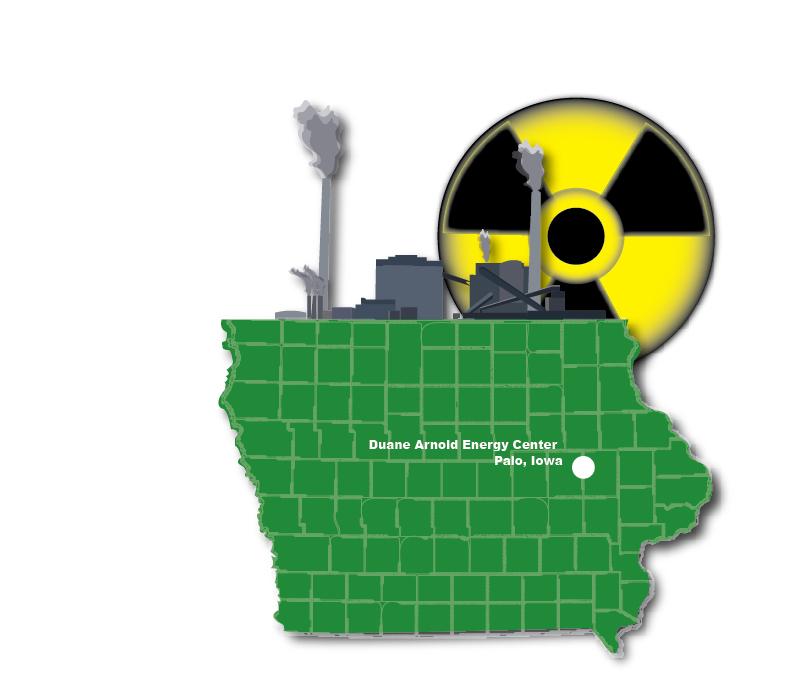Effects of disaster in Japan impact Iowa legislation
Graphic: Samantha Barbour/Iowa State Daily
Iowa’s nuclear dilemma
March 24, 2011
Although only the tremors from Japan’s massive earthquake were felt thousands of miles away, the disaster has impacted the state of Iowa by postponing nuclear legislation that was set to hit the floor of the Iowa Senate this week.
Senate File 390 is a bill that would pave the way for expansion of nuclear power facilities in Iowa. The state already has one nuclear plant that is similar to the reactors that exploded in the aftermath of Japan’s earthquake.
Although several lawmakers are trying to defer this legislation, Carolyn Heising, ISU professor of industrial and manufacturing systems engineering and expert in nuclear power plant safety, feels the state should not delay in constructing more of these facilities.
“The risk of having an earthquake of that magnitude is very low,” Heising said. “People are scared because of what happened in Japan, but disasters like this are very, very rare.”
The state’s existing plant is located near Cedar Rapids and generates enough electricity to support the needs of more than 600,000 homes each year. The plant also employs more than 500 Iowans.
Although these plants offer an affordable source of electricity, Sen. Herman Quirmbach, D-Ames, feels there is no reason to rush the legislation.
“I think in light of the situation in Japan we should be concerned about how the public feels, and right now they’re pretty unsure of nuclear power,” Quirmbach said.
There are several other factors that should be taken into consideration, he said. The most recent focus of Iowa lawmakers is the state budget, and the bill has not yet spelled out the costs of a new nuclear facility.
Iowa also boasts a number of other efficient energy sources, such as wind turbines that provided 15.4 percent of all electricity generated in the state in 2010. Quirmbach feels that a deeper evaluation of these energy sources should be considered before moving forward with the bill.
“I’m not saying we should sit on our hands forever, but I think right now it’s more important to make a good decision than a fast one,” Quirmbach said.
Sen. Joe Bolkcom, D-Iowa City, is a member of the committee on commerce, where the bill was first sent for consideration. He also feels that nuclear legislation should be put on the back burner for now.
“There is no rush,” Bolkcom said. “I don’t think the components of the proposal have made a strong case that this bill is needed right now.”
Bolkcom, along with other lawmakers, thinks that the state should proceed with the legislation carefully, and see how the aftermath of the nuclear disaster in Japan plays out before advancing any further.
“I think the situation in Japan certainly raises questions about spent fuel storage and the safety of these facilities,” Bolkcom said. “We’ve had a pretty good safety record in the United States with nuclear power; the problem is when you do have a problem, it can be a catastrophic one.”
Although the U.S. takes very strict safety measures in dealing with nuclear power plants, they are not infallible. Since the 1970s, four serious accidents have occurred, one of them killing three technicians in Idaho.
There will be a meeting Monday concerning the bill. Legislators will decide then whether the bill should be voted on or further stalled.







